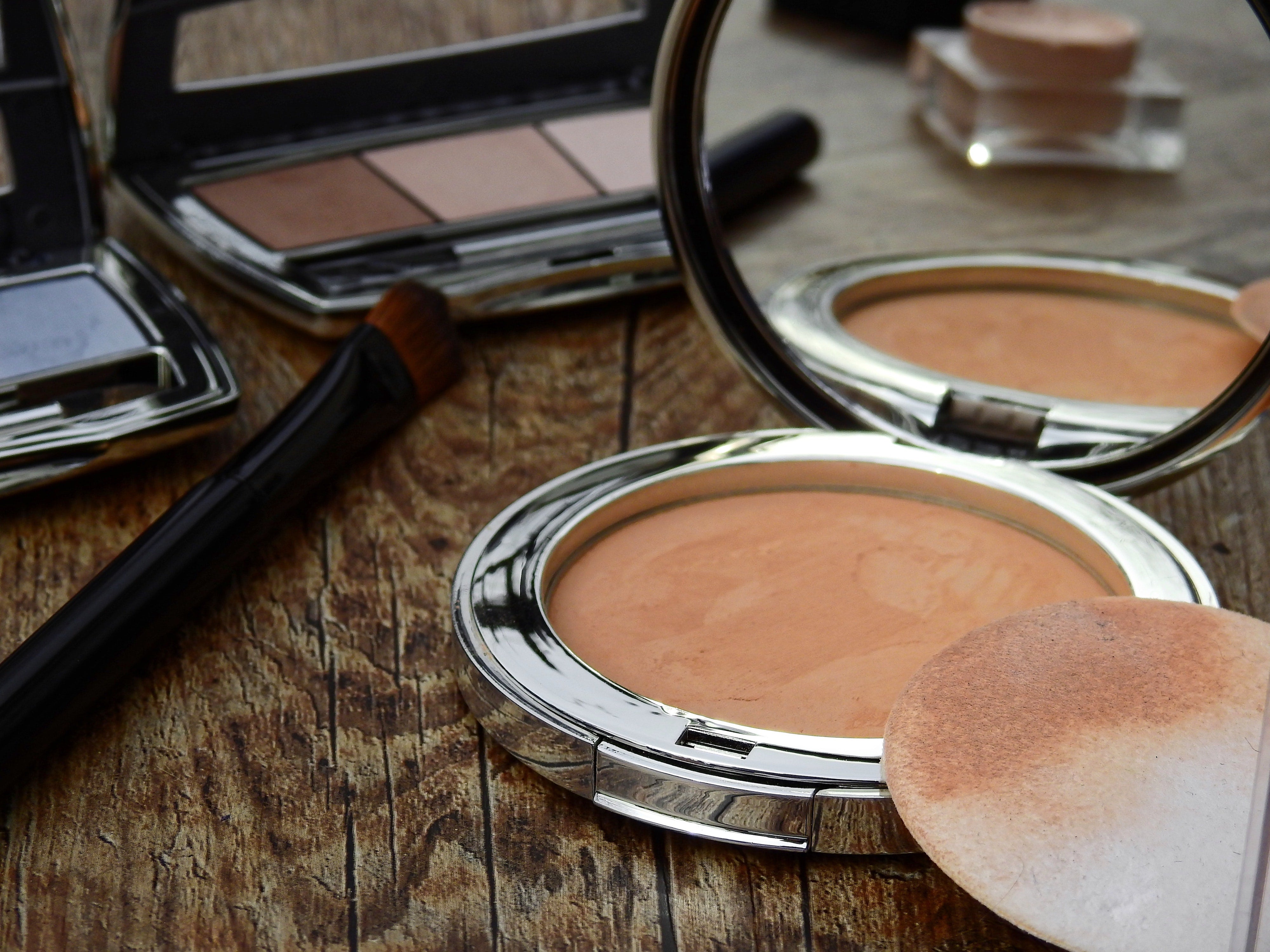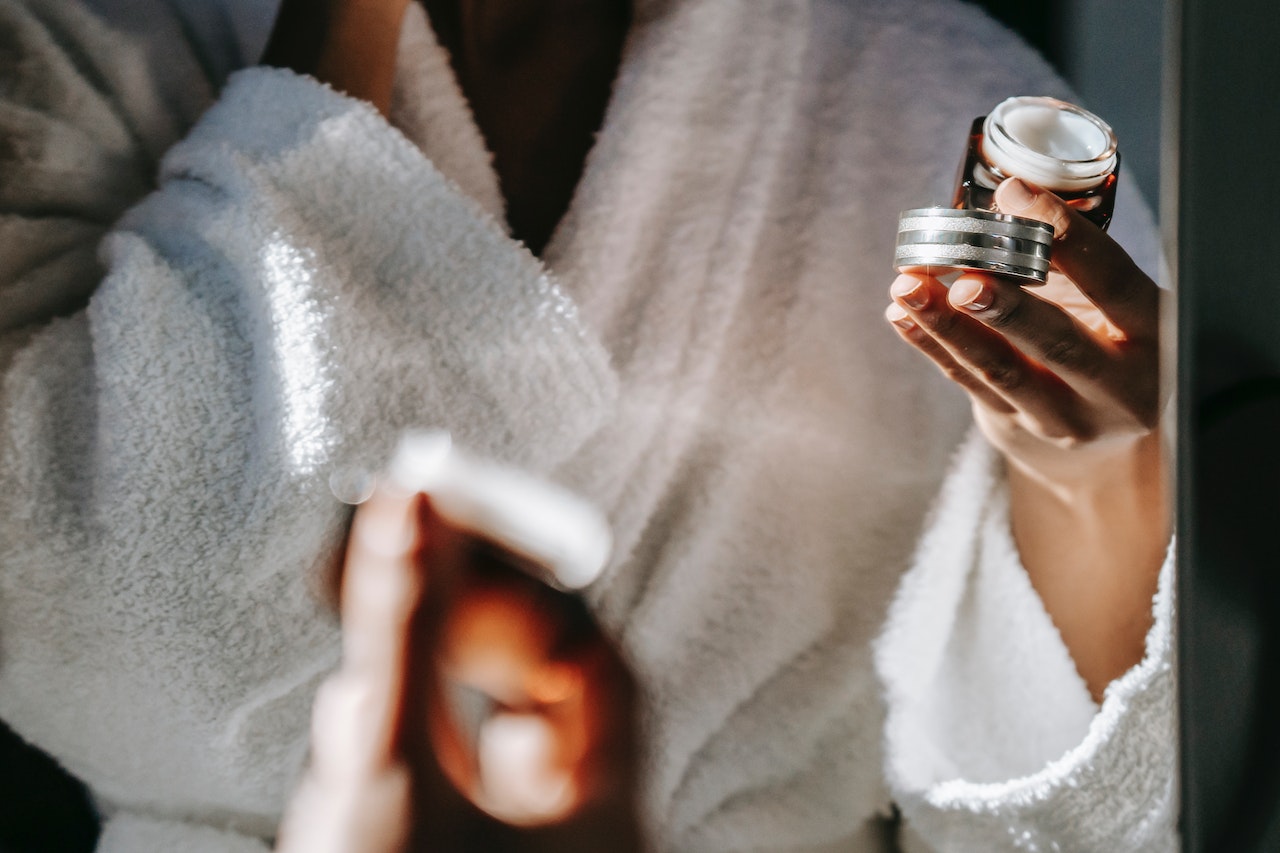
Can makeup cause acne? How to know if your makeup is causing breakouts
The relationship between makeup and acne can be tricky. If you have acne, you might be inclined to wear makeup to cover it. But you might also wonder: Is makeup making your acne worse? Or could it even be causing your acne in the first place? The answer is that it depends. Here, we’re breaking down the relationship between acne and makeup.
Can makeup cause acne?

Can makeup cause acne? The short answer: some cosmetics can cause acne, yes. This type of acne is called acne cosmetica, and it’s caused when your pores become clogged by heavy or irritating ingredients found in makeup or skincare products (psst: Averr Aglow skincare is designed to stop and prevent acne). Everyone’s skin is different, but common pore-clogging ingredients include perfumes, petrochemicals, bismuth oxychloride, Ethylhexyl palmitate, isopropyl myristate, acrylic, myristyl myristate, laureth-4, silicones, and sodium lauryl sulfate.
Characteristics of acne cosmetics could include itchy or rash-like bumps, whiteheads, blackheads, or localized breakouts, typically around the mouth, forehead, chin, and nose. This type of acne can take days, weeks, or even months to show up, so it can sometimes be difficult to connect an acne breakout with wearing makeup.
Does makeup make active acne worse?

Many acne sufferers cover up their breakouts with foundation or concealer, which may delay the healing process or—depending on the ingredients—cause even more irritation. If you are already prone to breakouts, certain makeup can sometimes worsen or lengthen its duration—especially heavy oil- or liquid-based foundations. If you have open or oozing pimples, covering them with makeup limits oxygen exposure and prevents them from healing, leaving them more prone to inflammation or even infection. With these breakouts, it’s best to focus on acne-healing skincare and wait until they’re healed before covering them with makeup.
How do you know if your makeup is causing acne?

Because acne cosmetics can take months to show up, think about any new makeup you’ve added to your routine over the last six months or so. If you can narrow down a certain product that’s causing your breakouts (or making them worse), you’ll want to stop using it immediately. If you’re not sure what could be causing your skin issues, look closely at product labels.
Makeup tips for acne-prone skin

Before you panic, this doesn’t mean you can never conceal breakouts with makeup again. Dermatologists generally agree that it’s perfectly fine for acne patients to wear makeup— as long as they’re following the proper precautions:
Use the right kind of makeup: Everyone’s skin is different, but general green flags to look for are water-based or mineral-based foundations labeled as non-comedogenic or hypoallergenic.
Prep your skin: Always apply makeup on a clean face. If you have active (but not oozing) breakouts, try spot-treating acne before applying foundation. And if you’ve recently popped a pimple (no judgment; we’ve all done it before!), avoid applying makeup on the open pore.
Use clean hands: Our fingers may carry germs or oils that irritate the skin, especially if you apply makeup with your hands. Make sure you wash your hands before applying makeup or use a brush or sponge.
Clean your makeup brushes: Aim to clean your makeup brushes or sponges every 7 to 10 days to avoid any acne-causing bacteria.
Always remove your makeup: And we mean ALWAYS. At night, use a high-quality makeup remover and follow with your favorite cleanser to ensure you remove toxins, bacteria, dirt, and makeup from the skin.





